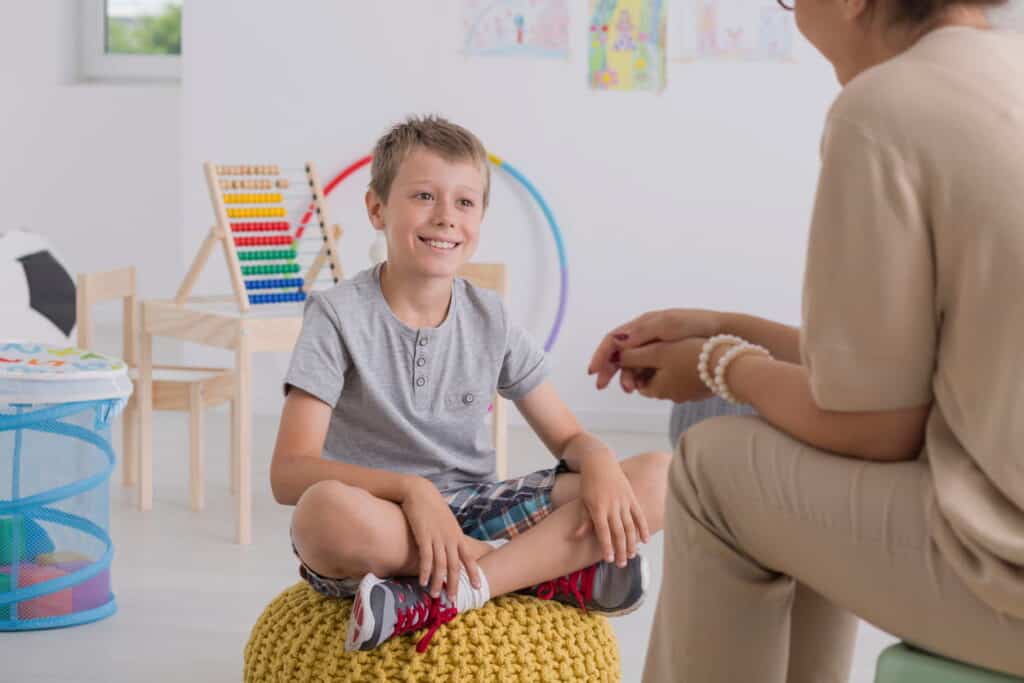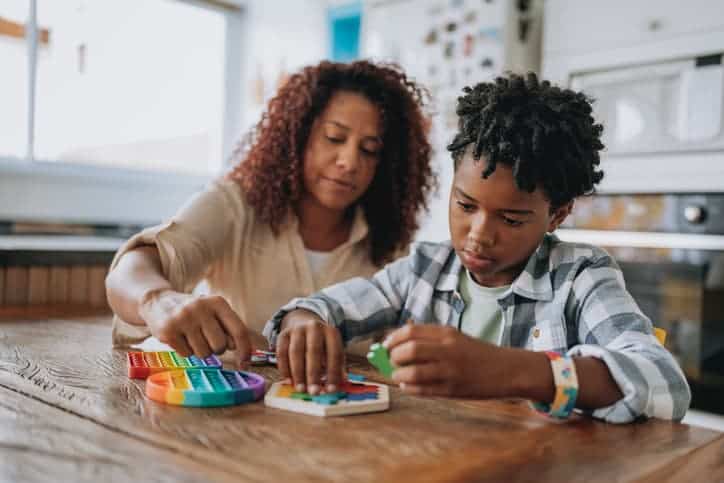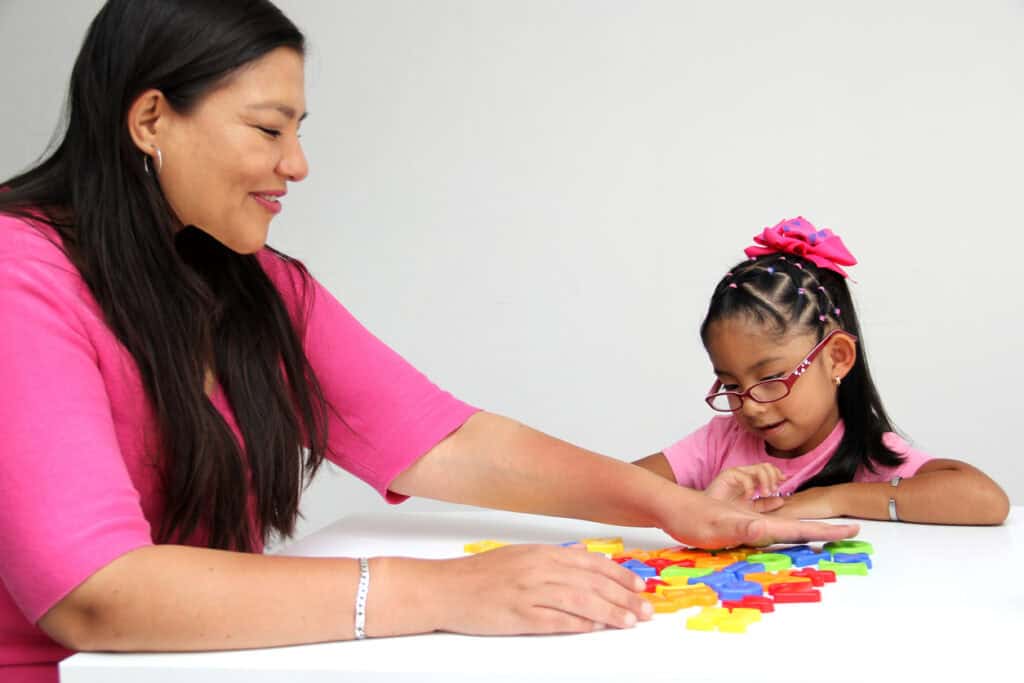How ADHD Affects Your Child
ADHD is a neurodevelopmental disorder that affects the way your child’s brain processes and handles information. It’s typically characterized by three core symptoms and can make it challenging for your child to succeed in school, sports, or social interactions.
- Inattention: Children with ADHD have difficulty staying focused or following instructions. They may be easily distracted and struggle to complete tasks or schoolwork.
- Hyperactivity: Many children with ADHD often have an abundance of energy and find it challenging to stay still. They may frequently fidget, squirm, or have difficulty engaging in quiet activities.
- Impulsivity: Kids with ADHD may also act impulsively without considering the consequences of their actions. Interrupting conversations or not waiting their turn are a few examples of this.
On top of these core symptoms, people with ADHD may struggle to organize their belongings, keep track of their school assignments, manage time effectively, or engage in activities that require sustained mental effort. In a school setting, these symptoms may make it more challenging for your child to earn good grades or establish meaningful relationships with peers.
How a Diagnosis of ADHD Helps
Fortunately, an early diagnosis of ADHD can make a drastic difference in your child’s life, allowing them to navigate their symptoms with greater success or reverse them completely. Here are three ways this helps your child:
Your Child Gets the Support They Need At School
One of the major benefits of an ADHD diagnosis is that your child can receive the accommodations they need at school. Many parents worry that their child’s ADHD symptoms will negatively impact their academic performance, and unfortunately, there is a lot of evidence to justify this concern. While many grow up to be productive, successful adults, this disorder can severely interfere with your child’s ability to learn, especially at a young age.
With a formal diagnosis from a healthcare provider, your child can receive accommodations such as extra time on tests, modified assignments, preferential seating, or other forms of support tailored to their needs. This type of assistance can be invaluable for children with ADHD who struggle to keep up in class, giving them the time and resources they need to thrive in a school setting.
You, Your Child, and Others Achieve A Deeper Understanding
A diagnosis of ADHD also helps you and others better understand your child’s behaviors and the challenges they face. You become able to explain to others that your child is not just acting out or having a bad day, but instead has an executive function disorder that impacts their ability to self-regulate and manage their emotions. This contextualizes why they may have trouble following directions or complying with expectations, even when they want to, or that changes in their routine can cause them to become overwhelmed because it impacts their working memory.
Similarly, knowing that there is a valid medical explanation behind some of your child’s struggles can also help reduce any feelings of guilt or shame they might experience when they’re unable to perform at the same level as their peers. The diagnosis of ADHD helps explain why their brains work differently than others, which can be a massive relief for children who may have spent years blaming themselves for being lazy or bad when they were unable to meet others’ expectations.

Get Additional Support With an IEP
A diagnosis of ADHD also allows medical professionals to craft an effective treatment plan tailored to your child’s individual needs and goals. ADHD non-medicine treatment programs may include techniques like cognitive behavioral therapy (CBT), neurofeedback, or attention and focus training that ensure all aspects of your child’s condition are addressed appropriately. These treatment options provide them with the tools to manage the symptoms of ADHD at the source, strengthening the underlying brain functions responsible for attention, self-regulation, and more.
Partner With a Leader of ADHD Non-Medicine Treatment
especially if it’s undiagnosed. That’s why we’re committed to providing complete neuropsychological assessments for children as well as customized Transformative Brain Programs that give your child the tools they need to thrive in school, social encounters, and life in general.
Reach out to us today to learn more and start making a difference in your child’s life.






